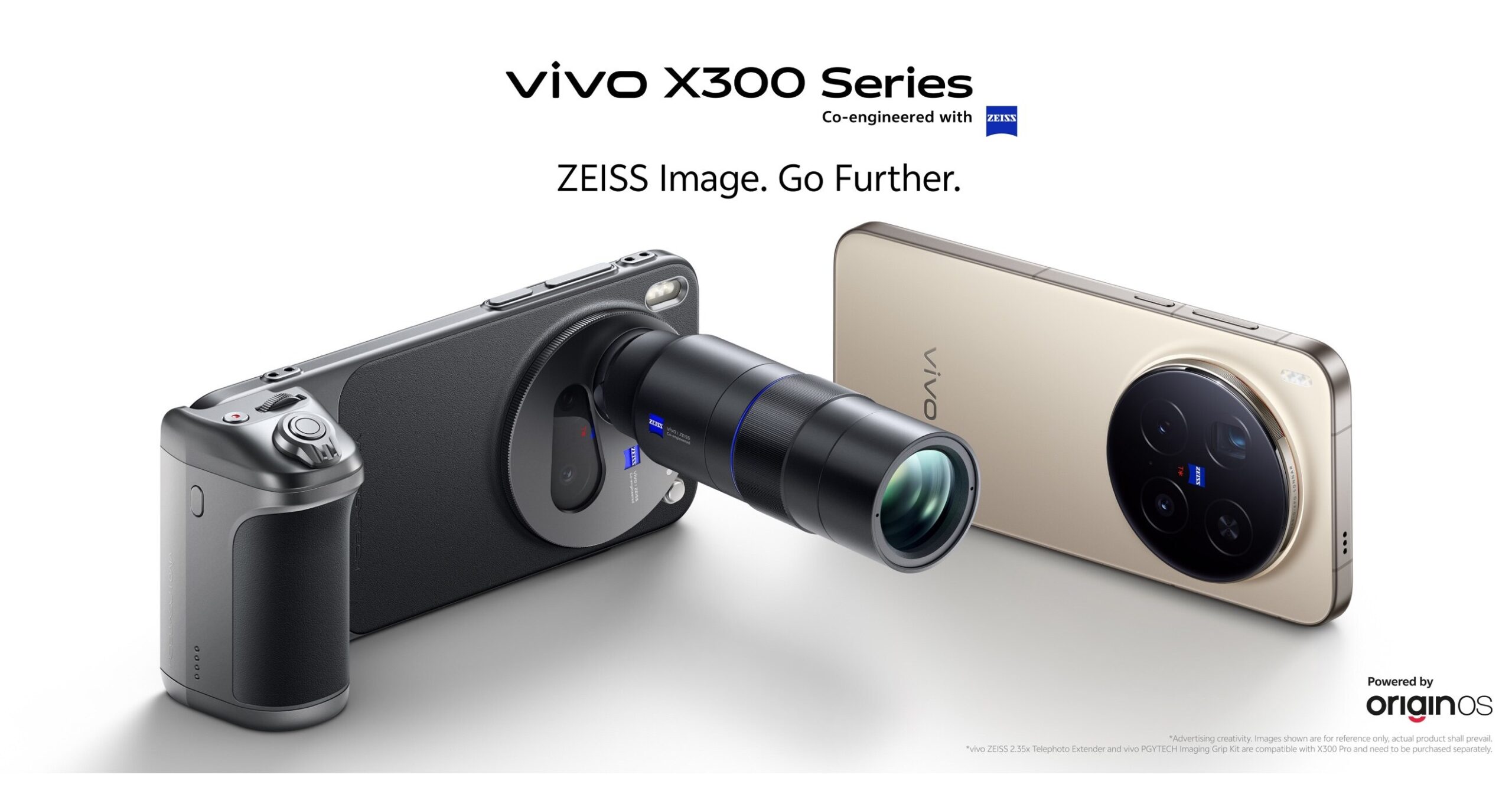SHENZHEN, China, Oct. 30, 2025 /PRNewswire/ — vivo today officially announced the global launch of its latest X-series flagships: the X300 and X300 Pro. Celebrating vivo’s 30th anniversary, the series underscores the…
Blog
-

The discounted SwitchBot Bot can add smarts to your monitor and coffee maker for just $24
You don’t necessarily have to buy a bunch of pricey new smart devices to enjoy the convenience of a smart home. The SwitchBot Bot offers an easy, affordable way to bring smart control to many of the regular gadgets you already own, and right…
Continue Reading
-
3D Maps Bring Exoplanets Into Focus – astrobiology.com
- 3D Maps Bring Exoplanets Into Focus astrobiology.com
- Now in 3D, maps begin to bring exoplanets into focus Cornell Chronicle
- Horizontal and vertical exoplanet thermal structure from a JWST spectroscopic eclipse map Nature
- Scientists create…
Continue Reading
-

Intraoperative radiation reduces the recurrence rate of pancreatic cancer
Using targeted radiation during surgery – referred to as intraoperative radiation – to eliminate pancreatic cancer cells that have spread to areas around the pancreas, investigators at Johns Hopkins have been able to reduce the…
Continue Reading
-

India stun Australia with record run chase to reach Women’s Cricket World Cup 2025 final
Australian captain Alyssa Healy, returning to the playing XI after two matches on the sidelines due to injury, called it right at the coin toss and elected to bat first.
Healy, whose century had helped Australia chase down a record score against…
Continue Reading
-

Honda, VW bracing for outage
A Honda sedan moves down the assembly line on Jan. 28, 2025 at the automaker’s assembly plant in Marysville, Ohio.
Michael Wayland / CNBC
Global automakers are once again bracing for production disruptions due to a potential shortage of automotive semiconductor chips, this time sparked by the Dutch government amid geopolitical tensions between the U.S. and China.
Honda Motor became the first known automaker this week to reduce production due to the problem that involves chips from Netherlands supplier Nexperia, which is owned by Chinese company Wingtech Technology Co.
The industry was hopeful that a meeting this week between President Donald Trump and Chinese leader Xi Jinping in Asia would provide some relief, but no resolution on the chips issue has been announced.
Volkswagen on Thursday reportedly said it has until at least next week before its supplies impact production, while other major automakers have said they are monitoring the situation around the clock, attempting to mitigate disruptions.
“The chip situation from Nexperia, we have a cross-functional ‘war room’ in the building where I’m sitting that has this as [a] primary job,” Stellantis CEO Antonio Filosa told investors during a quarterly call Thursday. “And every day we are pushing actions and projects to extend our period. There is a day-by-day management of what is an industry-wide global issue.”
U.S. President Donald Trump and Chinese President Xi Jinping shake hands as they depart following a bilateral meeting at Gimhae Air Base on October 30, 2025 in Busan, South Korea.
Andrew Harnik | Getty Images
Such “war rooms” have become a regular practice in the automotive industry amid supply chain disruptions, which have become more common since the Covid pandemic rattled production and deliveries of many parts, including chips, starting in 2020.
Several automotive industry insiders confirmed to CNBC that war rooms have been established in their companies, as they look into alternative purchasing methods. They included working with major suppliers in an attempt to find alternative sources as well as buying on the open market.
“Suppliers across the motor vehicle industry are working to understand the potential effects on production and supply continuity,” MEMA, the largest vehicle supplier association in the U.S., said in an emailed statement. “Chips and diodes are foundational to automotive components and systems, from infotainment systems to door handles, to steering and braking. Even the absence of a single diode or chip can disrupt the manufacture of vehicles.”
Nexperia
The situation involving Nexperia began late last month, when the Dutch government took control of the company, in what was seen as a highly unusual move, reportedly after the U.S. raised security concerns.
In making the decision, the Dutch government cited fears that tech from the company — which specializes in the high-volume production of chips used in automotive, consumer electronics and other industries — “would become unavailable in an emergency.”
China responded by blocking exports of the firm’s finished products, sparking alarm in Europe’s auto industry.
German automakers are especially sensitive to Nexperia-related disruptions because they rely heavily on large, domestic suppliers, known as “Tier 1s,” and local production facilities and companies, such as Nexperia, despite much of its manufacturing moving to China.
The European Automobile Manufacturers’ Association said this week that carmakers were close to closing production lines because of the chip shortage, which comes four years after a shortage of such parts amid the coronavirus pandemic.
A close-up view of the Nexperia plant sign in Newport, Wales on April 1, 2022.
Matthew Horwood | Getty Images News | Getty Images
“This means assembly line stoppages might only be days away. We urge all involved to redouble their efforts to find a diplomatic way out of this critical situation,” ACEA Director General Sigrid de Vries said in a statement.
The chips affected are legacy semiconductors used in basic vehicle functions such as windshield wipers and window controls — parts that lack sufficient alternative sources, according to S&P Global Mobility.
A Nexperia spokesman referred to a previous statement from the company, which summarized the ongoing situation and said it is seeking an exemption from the export restrictions and working to mitigate the impacts of the decision.
Wingtech did not immediately responded for comment Thursday via email. The company earlier this week described the situation to The Wall Street Journal as “an existential threat [to Nexperian] because of the reckless actions of the Dutch government.”
Fluid situation
Honda’s production cuts impacts include all of its main North American plants, including large vehicle assembly and supporting facilities across the U.S., Canada and Mexico.
“We are currently managing an industrywide semiconductor supply chain issue, making strategic adjustments to production as necessary to carefully manage the available supply of parts and meet the needs of our customers,” Honda said Thursday in an emailed statement, calling it a “fluid” situation.
The impacts are expected to continue to spread to other automakers if a resolution is not found.
Ford Motor CEO Jim Farley last week said the chip problem was at the forefront of conversations when he made a trip to Washington, D.C, earlier this month. He called it a “political issue,” saying the company is working with the U.S. and China administrations to resolve it.
“It’s an industrywide issue. A quick breakthrough is really necessary to avoid fourth-quarter production losses for the entire industry,” said Farley, adding that automakers have gotten “really good” at maximizing component purchases such as chips following the crisis in 2021.
General Motors CEO Mary Barra made similar comments last week, calling it an “industry issue” that will hopefully be resolved soon.
“While this has the potential to impact production, we have teams working around the clock with our supply chain partners to minimize possible disruptions. The situation is very fluid and we will provide updates throughout the quarter as appropriate,” she said during the company’s quarterly earnings call.
Other automotive executives from Volvo, Mercedes-Benz and more have also shared similar thoughts with investors and the media.
“This is a politically induced situation … which means that the solution to this, or the resolution to this, resides in the political space, primarily between the United States and China, in this case, with Europe kind of caught in the middle,” Mercedes-Benz CEO Ola Källenius said Wednesday during an earnings call.
Continue Reading
-

Sertraline Shows Early Benefits on Core Depression Symptoms
One of the most common antidepressants, sertraline, contributes to a modest improvement in core depression and anxiety symptoms, including low mood, within two weeks, finds a new analysis of a major clinical trial led by UCL…
Continue Reading
-

Delaware top lawyer warns of legal action if OpenAI fails to act in public interest
Unlock the Editor’s Digest for free
Roula Khalaf, Editor of the FT, selects her favourite stories in this weekly newsletter.
One of the top US officials overseeing OpenAI’s restructuring has warned she will take legal action against the ChatGPT maker if it fails to stick to public interest pledges Sam Altman agreed in negotiations to unlock the deal.
Kathy Jennings, the attorney-general of Delaware, told the Financial Times she consented to the deal after securing multiple binding legal commitments from Altman, OpenAI’s chief executive. They require the $500bn start-up to prioritise AI safety over its shareholders’ commercial gain.
The final agreement, announced on Tuesday, puts key decisions, including launching a public listing, in the hands of the non-profit OpenAI Foundation, which has a 26 per cent stake in the for-profit arm, called the OpenAI Group, worth $130bn.
“Anyone who is familiar with our work knows we are not shy to go into the courtroom to benefit the public if we need to,” said Jennings, who has previously taken legal action challenging Elon Musk’s so-called Department of Government Efficiency.
The complex restructure was finalised late on Monday night, after direct talks between Altman, Jennings and her California counterpart, Rob Bonta, according to multiple people with direct knowledge of the process.
OpenAI’s chief financial officer, Sarah Friar, worked in parallel to negotiate financial terms directly with Amy Hood, her counterpart at Microsoft, which is OpenAI’s biggest shareholder under the new structure, they added.
The deal, after more than a year of negotiations, enables investors to hold equity for the first time and unlocks a future stock market offering.
Altman said on Tuesday that an IPO was the most likely path for the AI group, though the company said it was too early to settle the timing or size of the raise. “An IPO is not our focus, so we could not possibly have set a date,” the company said.
As part of the restructuring discussions, Jennings and Bonta sought to codify language in OpenAI’s charter, which lays out principles to ensure AGI — AI which surpasses human intelligence — benefits humanity.
It also commits OpenAI to join forces with any “safety-conscious” rival that has a good chance of reaching OpenAI’s goal of creating AGI within a two-year timeframe.
“The charter was important to us [and was] one of the key concessions that we got,” said Owen Lefkon, a senior attorney in Jennings’s office, who worked on the agreement. “Up until this week, it was just a page on a website. As of today, the company has committed to two state attorneys-general that it will be used to execute the mission going forward.”
Jennings said Altman’s agreement to place OpenAI’s safety and security committee, which has the power to block the release of AI models, under the OpenAI Foundation rather than the OpenAI Group was also “a critical turning point in our discussions”.
“The question all along was whether OpenAI would reorient away from its charitable goals and towards profit-making. [Tuesday’s] agreement has meaningful provisions which mean the mission controls the operations,” said Jill Horwitz, a professor at Northwestern University and UCLA and expert in non-profit law.
These commitments mean OpenAI’s shareholders — including SoftBank and venture capitalists such as Thrive Capital and Khosla Ventures — are still exposed to unique risks from the start-up’s governance.
But it is unclear how some of these requirements will work in practice. Microsoft chief executive Satya Nadella on Tuesday questioned the definition of AGI, calling it a “nonsensical word”.
Microsoft, which has invested $13.75bn into OpenAI, agreed new terms with the start-up after Hood and Friar “took the deal offline and away from the lawyers” to iron out the final details last week, according to a person with knowledge of the matter.
The companies signed a draft agreement on September 11, and set a 45-day countdown to finalise terms by this week. The last piece to fall into place was a pledge from OpenAI to spend $250bn with the technology giant’s cloud arm over time.
“That was the final sticking point to be resolved and it got finalised over the weekend between Sarah and Amy,” said one person with knowledge of the talks. The pair both worked at Goldman Sachs in the early 2000s and have known each other for decades.
Microsoft, which will take a 27 per cent stake worth $135bn in the OpenAI Group, extracted another important concession: the group and its AI chief Mustafa Suleyman are now free to pursue AGI on its own and with third parties, having been prevented from doing so under the previous contract.
OpenAI, meanwhile, insisted on being able to ringfence significant pieces of “AGI-level” research from Microsoft, provided those were not commercialised, according to a person familiar with the discussions.
Continue Reading
-

Reducing ketone levels and increasing exercise capacity could help manage diabetic ketoacidosis
A researcher at the University of Houston finds management of diabetic ketoacidosis may center around reducing ketone levels in diabetic patients and increasing exercise capacity for better health outcomes. That could be…
Continue Reading

